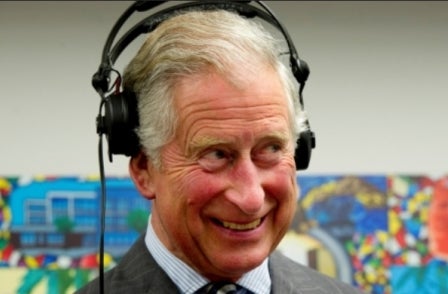
The Guardian today won a major legal victory for press freedom over Government secrecy as it won the right to see a number of letters to ministers written by Prince Charles.
However, the Government has already said it will take the Appeal Court decision to the Supreme Court and the letters will now remain under lock and key pending a final ruling.
It is the latest stage in a legal battle for Guardian journalist Rob Evans which began when he sought disclosure of various written correspondence between Prince Chartles and government departments sent between September 2004 and April 2005.
His request was refused by the departments and that refusal was upheld by the Information Commissioner prompting Evans to appeal to the First Tier Tribunal. The case was transferred to the Upper Tribunal and in a lengthy ruling issued on 19 September 2012 the tribunal ruled in The Guardian's favour.
It said that Evans was entitled to see "advocacy correspondence" for the "essential reason" that it "will generally be in the overall public interest for there to be transparency as to how and when Prince Charles seeks to influence government".
The tribunal said: "The departments have urged that it is important that Prince Charles should not be inhibited in encouraging or warning government as to what to do…In broad terms our ruling is that although there are cogent arguments for non-disclosure, the public interest benefits of disclosure of 'advocacy correspondence' falling within Mr Evans's requests will generally outweigh the public interest benefits of non-disclosure."
This prompted Attorney General Dominic Grieve to issue a certificate under section 53 of the FoI Act exercising his ministerial veto. In July 2013 that decision was upheld by the High Court.
But today Court of Appeal judges Lord Dyson, the Master of the Rolls, Lord Justice Richards and Lord Justice Pitchford, ruled that Grieve's veto should be quashed.
Lord Dyson said: "The Attorney-General did not have reasonable grounds for forming the opinion on which the certificate was based. The mere fact that he reached a different conclusion from the UT [Upper Tribunal] in weighing the competing public interests involved was not enough. He had no good reason for overriding the meticulous decision of the UT reached after six days of hearing and argument. He could point to no error of law or fact in the UT’s decision and the government departments concerned did not even seek permission to appeal it. The certificate is also unlawful because it is incompatible with EU law."
The Attorney General was granted permission to appeal against today's ruling to the Supreme Court. The quashing order is stayed pending his appeal.
A spokesman for the Attorney General said: "We are very disappointed by the decision of the court. We will be pursuing an appeal to the Supreme Court in order to protect the important principles which are at stake in this case."
A spokesperson for The Guardian said: "The public has a right to know if the heir to the throne is advocating policy or promoting causes to government ministers. We welcome today's appeal court judgment finding that it was wrong to block the release of the letters. We hope the Attorney General will recognise he has reached the end of the legal road and that government departments will now publish the correspondence so that the public can judge for themselves."
Grieve had said that the departments were legally entitled to refuse disclosure because the correspondence was undertaken as part of the Prince's "preparation for becoming king".
Making the letters public could potentially damage the principle of the heir to the throne being politically neutral, and so undermine his ability to fulfil his duties when king, he argued.
Dinah Rose QC argued on behalf of Evans at the appeal hearing last month that Grieve had used section 53 "executive override" powers merely because he disagreed with the tribunal. She said: "The implications for the rule of law are grave".
Evans said he is fighting to shed more light "on the way the heir to the throne seeks to influence Government ministers even though he holds no elected position".
The seven government departments Charles wrote to were Business, Innovation and Skills; Health; Children, Schools and Families; Environment, Food and Rural Affairs; Culture, Media and Sport; the Northern Ireland Office and the Cabinet Office.
The full Appeal Court judgment is available here.
Email pged@pressgazette.co.uk to point out mistakes, provide story tips or send in a letter for publication on our "Letters Page" blog
